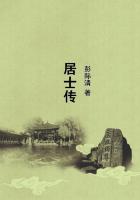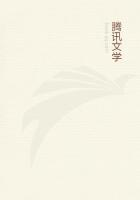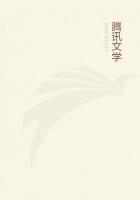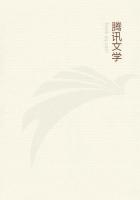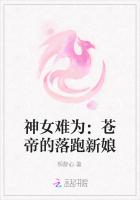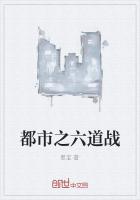Ferencz MolnarThe Living Death Here is a very serious reason, my dear sisters, why at last, after an absence of twenty years in America, I am confiding to you this strange secret in the life of our beloved and lamented father, and of the old house where we were children together. The truth is, if I read rightly the countenances of my physicians as they whisper to each other by the window of the chamber in which I am lying, that only a few days of this life remain to me.
It is not right that this secret should die with me, my dear sisters. Though it will seem terrible to you, as it has to me, it will enable you to better understand our blessed father, help you to account for what must have seemed to you to be strange inconsistencies in his character. That this secret was revealed to me was due to my indolence and childish curiosity.
For the first, and the last, time in my life I listened at a keyhole. With shame and a hotly chiding conscience I yielded to that insatiable curiosity--and when you have read these lines you will understand why I do not regret that inexcusable, furtive act.
I was only a lad when we went to live in that odd little house.
You remember it stood in the outskirts of Rakos, near the new cemetery. It stood on a deep lot, and was roughly boarded on the side which looked on the highway. You remember that on the first floor, next the street, were the room of our father, the dining room, and the children's room. In the rear of the house was the sculpture studio. There we had the large white hall with big windows, where white-clothed laborers worked. They mixed the plaster, made forms, chiseled, scratched, and sawed. Here in this large hall had our father worked for thirty years.
When I arrived, in the holidays, I noted a change in our father's countenance. His beard was white, even when he did not work with the plaster. Through his strong spectacles his eyes glittered peculiarly. He was less calm than formerly. And he did not speak much, but all the more did he read.
Why, we all knew that after the passing away of our mother he became a bookworm, reading very often by candlelight until morning.
Then did it happen, about the fourth day after my arrival. I spent my leisure hours in the studio; I carved little figures, formed little pillar heads from the white plaster. In the corner a big barrel stood filled with water. It was noon; the laborers went to lunch.
I sat down close to the barrel and carved a Corinthian pillar.
Father came into the studio and did not notice me. He carried in his hands two plates of soup. When he came into the studio he closed the door behind him and looked around in the shop, as though to make sure he was not observed. As I have said, he did not notice me. I was astonished. Holding my breath, I listened.
Father went through the large hall, and then opened a small door, of which I knew only so much that it led into a chamber three steps lower than the studio.
I was full of expectation: I listened. I did not hear a word of conversation. Presently father came back with the empty plates in his hand. Somebody bolted the chamber's door behind him.
Father went out of the studio, and I, much embarrassed, crept from behind the barrel.
I knew that the chamber had a window, which looked back toward the plowed fields. I ran out of the studio and around the house. Much to my astonishment, the chamber's window was curtained inside. Alarge yellow plaid curtain hid everything from view. But I had to go, anyway, for I heard Irma's voice calling from the yard:
"Antal, to lunch!"
I sat down to the table with you, my sisters, and looked at father.
He was sitting at the head of the table, and ate without saying a word.
Day after day I troubled my head about this mystery in the chamber, but said not a word to anybody. I went into the studio, as usual, but I did not notice anything peculiar. Not a sound came from the chamber, and when our father worked in the shop with his ten laborers he passed by the small door as if beyond it there was nothing out of the ordinary.
On Thursday I had to go back to Germany. On Tuesday night curiosity seized me again. Suddenly I felt that perhaps never would I know what was going on in my father's house. That night, when the working people were gone, I went into the studio. For a long time I was lost in my thoughts. All kinds of romantic ideas passed through my head, while my gaze rested on that small mysterious chamber door.
In the studio it was dark already, and from under the small door in a thin border a yellow radiance poured out. Suddenly I regained my courage. I went to the door and listened. Somebody was speaking.
It was a man's voice, but I did not understand what he was saying.
I was putting my ear close to the door, when I heard steps at the front of the studio. Father came.
I quickly withdrew myself behind the barrel. Father walked through the hall and knocked on the door softly. The bolt clicked and the door opened. Father went into the chamber and closed the door immediately and locked it.
Now all discretion and sense of honor in me came to an end.
Curiosity mastered me. I knew that last year one part of this small room had been partitioned off and was used as a woodhouse.
And I knew that there was a possibility of going into the woodhouse through the yard.
I went out, therefore, but found the woodhouse was closed. Driven by trembling curiosity, I ran into the house, took the key of the woodhouse from its nail, and in a minute, through the crevice between two planks, I was looking into that mysterious little room.
There was a table in the middle of the room, and beside the wall were two straw mattresses. On the table a lighted candle stood. Abottle of wine was beside it, and around the table were sitting father and two strangers. Both the strangers were all in black.
Something in their appearance froze me with terror.
I fled in a panic of unreasoning fear, but returned soon, devoured by curiosity.

